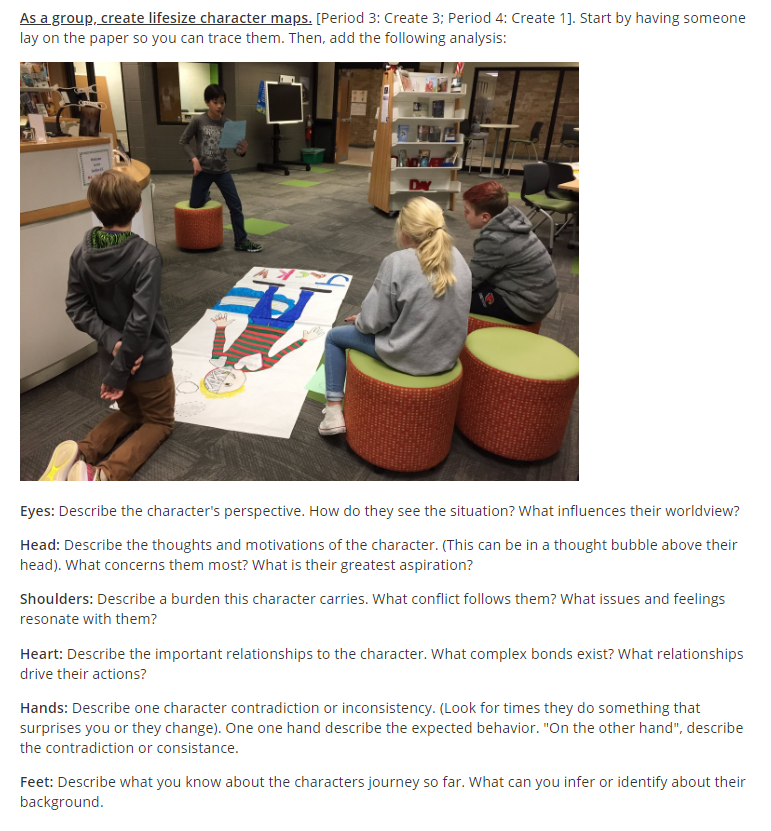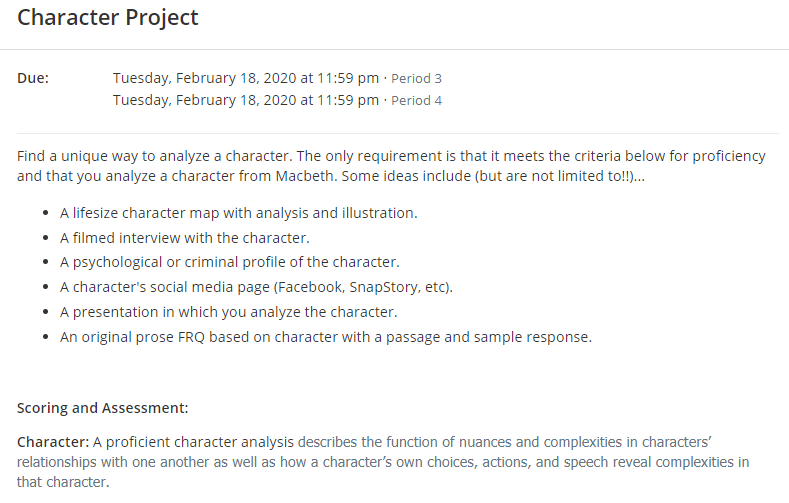|
I am the elusive English teacher that hates poetry. Actually, I don't HATE poetry. I love rupi kaur poems, song lyrics, and Pablo Neruda. I just hate everything education has done to ruin poetry. For the kids. For myself. Which is why I was a bit hesitant to take on AP Literature and Composition last year - where half the test is poetry! (#cringe) Nonetheless, I have managed to find my way around the hated scansion and poetic form bits so that I can hate it a little less. For instance, last year we focused on global voices and poets. Below is my little crash course version of the unit. Global Voices: The Danger of a Single Story
#2. Poetry FRQsThere are two terrific poetry (Question 1) Free Response Questions by foreign born poets that I used with this unit to great success: 2011's "A Story" by Li-Young Lee and "XIV" by Derek Walcott from the 2015 exam. Below are prewriting templates I used with students.
#3. PUrple Hibiscus Prose AnalysisYes. I realize this isn't really poetry practice, but this is a short prose analysis activity I brought in to review Question 2 as well. #4. COnflict in PoetryI wanted to review conflict with my students at some point in this lesson last year, so I put together a gallery walk. Below are the poems and the handout they completed:
#5. Abstract RelationshipsThis is a lesson I added on this year. Another gallery walk, this one is helping students think about the "broader context" that is required of them for the sophistication point. I went through my own sample of analyzing abstract ideas #6. Emoji Annotation
And that's what I got! Like I said, I am a very reluctant poetry teacher, but these activities have worked well for me and my students. Hope it helps! Sincerely, Cwik
1 Comment
 << This is me any time I am about to post materials for AP Literature and Composition. While I have been teaching AP Language and Composition for years (ok... five), I don't feel like I have much authority in talking about AP Lit, as it is only my second year. Nonetheless... I'm going to pretend that I know what I am talking about. Currently, my AP Literature class is working through Shakespeare, but I have a VERY different approach than most take with Shakespeare.
For instance, I have not "read" with any of my students in the Hamlet or Macbeth group. However, they aren't struggling. In fact, they are catching on better than a lot of past students. Today, the Hamlet students made fullsize character maps and picked out nuanced points of analysis, such as: Hamlet's blind motivation and Claudius' complex perception of Hamlet. Note that these kids struggle with reading. For the past two years, they have struggled with multiple choice the most of any group I've worked with. They can - however - still do this. So I promise you: They can read Shakespeare on their own. In fact, when they discover things themselves - like the rumor that Othello was intimate with Iago's wife or that Rosencrantz and Guildenstern are essentially traitors - they get much more enjoyment out of it. Its an accomplishment, and they're proud. (As they should be!) One issue with structuring Shakespeare this way means adapting character analysis assignments to fit each group setup and preference. (Yes. I have three versions of every assignment. No. It did not take my forever to set it up). Therefore, I got stuff to share! Three variations of how to analyze character. Option 1: Actor Portrayal PromosThis one occurred to me just the other day. I was watching videos on the Royal Shakespeare Company's website and they have a series in which actors discuss the complexities of their characters. I immediately thought, "What a great way to practice analyzing character!" Hence, I threw together (like, in five minutes) an activity. Option 2: Character MapsI wanted something more interactive for my students reading Hamlet, because their preference is group assignments. I looked to an old favorite - the character map - but adapted it to align better to AP Literature standards. The original assignment asks simpler questions: How does the character feel? What do they love most? To match up to AP standards, I swapped those out for questions about character perspective, inconsistencies, complex relationships. etc. Below is both the screenshot from my Schoology page as well as the makeup version. My Schoology post also included the following description of proficiency: A proficient character map will use multiple textual details to make inferences about the character. These will show clearly on the map. There will also be evidence of analysis. For instance, when describing relationships, you will describe the complexity (_____ yet _______). Option 3: Choice BasedThis option may be a bit scary for some teachers. However, I spent the entire first semester setting kids up to determine their preferred products and assessments. That said, the option (for my Macbeth kids) just allows kids to take it wherever they want: And that's what I got! If you'd like more of my varied assignments, comment below! Differentiation is something I am very passionate about, but that I also recognize terrifies many people (including myself sometimes). If there is anything more I can go or create to help you make it happen, let me know! |
Archives
February 2024
AuthorSteph Cwikla has been a teacher since 2012, focusing on ELA curriculum. Now, she also works as an instructional coach, helping other teachers improve engagement and instruction. |


 RSS Feed
RSS Feed